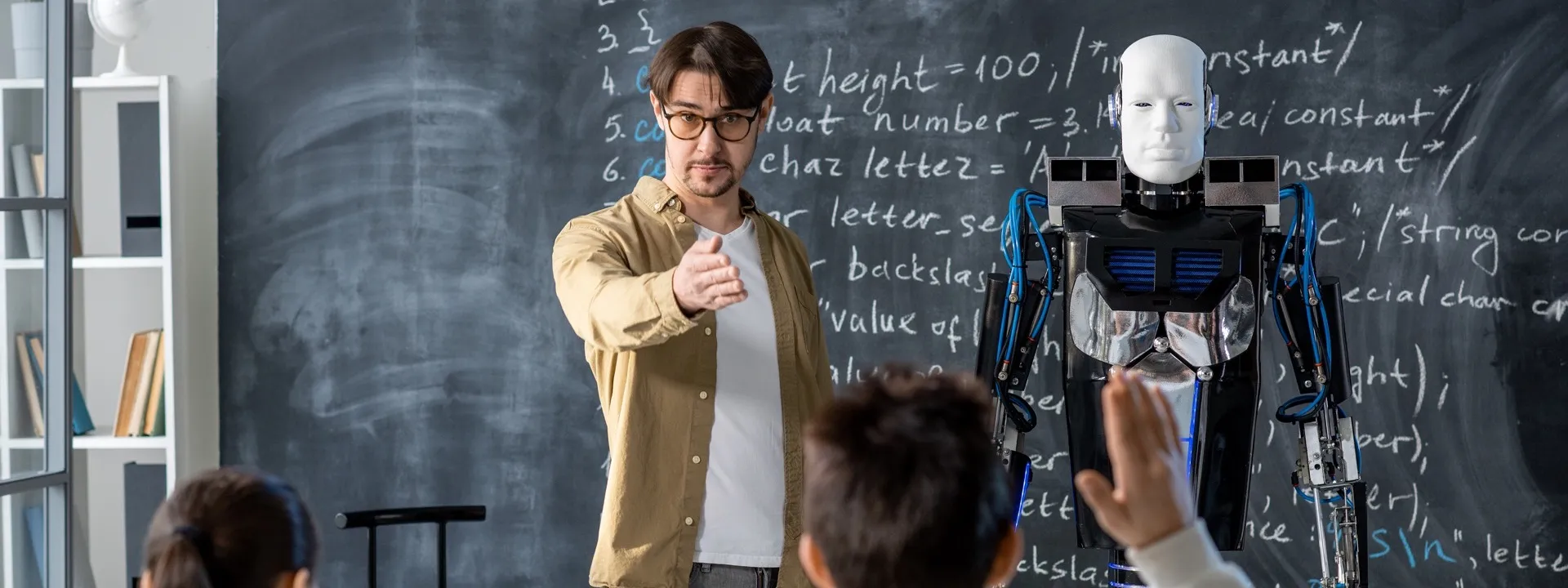Many educational systems rely on traditional teaching methods. This could all change in the near future as educators and institutions embrace new technologies like artificial intelligence (AI). Some promising applications include research, machine learning, data analytics, and task automation.
While AI will never supplant human teachers, it can help facilitate and enhance active engagement between students and educators. Presently, the lack of dedicated funding is a barrier to implementing AI technology broadly. However, as the technology becomes commonplace, more affordable options will become available. According to a report titled Artificial Intelligence Market in the US Education Sector, access and investment in AI are expected to grow nearly 50% year-over-year until 2025.
Benefits of Artificial Intelligence on Education
The possibilities are endless when it comes to artificial intelligence, especially since this technology is still an active area of research. Here are some of the key benefits we can expect to see from AI in the future.
-
Accessibility - AI has the potential to break down barriers that prevent people around the world from being able to gain access to education. Technology can scale cost-effectively, provide automatic translations into hundreds of local languages, and erase grade levels boundaries that may hold students back.
-
Research - Each year, educational institutions spend nearly $85 billion on research and development. Since computers today are capable of processing large amounts of data, students and university researchers could leverage AI to speed up computational model building and explore hundreds of scenarios in mere seconds. AI also helps with the search and discovery of available literature as recommendation systems become more broadly implemented in reference management solutions like Petal.
-
Personalization - Each student has individual needs. What works for one student might not work for another. Unfortunately, human teachers are limited in their ability to tailor their lesson plans to every learning style. On the other hand, AI can assess a student’s current knowledge levels, past performance, and individual goals at a granular level to curate a personalized lesson plan. For example, an AI program could identify that a student performs better on math exercises that have visual elements and recommend them for more advanced related subjects to hone their talent. This would greatly benefit students with disabilities that need a specialized curriculum.
-
Grading - While technology enables educators to scale educational materials such as video content and online classes, grading and providing feedback is still a manual process. AI can help streamline the grading process by providing personalized feedback to students in real-time. AI also helps eliminate bias or subjectivity that comes with human evaluators, especially for assignments that include open-ended questions or personal opinions.
-
Libraries and Reference Materials - It takes a lot of time to review, index, and classify reference materials such as books, peer-reviewed studies, and other publications. AI could mitigate this tedious task for librarians by extracting full-text from documents, automatically assigning metadata, and grouping it with similar works.
-
Discovery - We have all received recommendations for products based on our online activities. Amazon might recommend certain items based on your shopping cart and TikTok might show you a video based on your viewing history. Both of these are examples of AI-based algorithms. The same could be leveraged for education to prompt students to dive deeper into relevant topics. For example, a student studying ancient Egyptian history could be prompted with new literature on the development of hieroglyphics.
-
Writing - Artificial intelligence can be used to produce, edit, and analyze written materials. In addition to spelling, grammar, and plagiarism checks, AI has the potential to transform a long and complex document into a summarized and easy-to-understand one.
-
Citation - As students write papers, artificial intelligence could make recommendations for statistics, quotes, and other references that could better support the topic. AI could also evaluate multiple sources to determine if the citation is used accurately or contradicts any other reputable sources.
Experience the Power of AI with Petal
Petal uses state-of-the-art artificial intelligence to help you get the most out of your reference library. Our program automatically extracts metadata and embedded elements like figures and tables from uploaded journal articles, books, reports, and other reference materials. This powerful software gives your team the ability to stay organized and find relevant information on-demand. Join Petal for free today and unlock the full potential of your research library.

